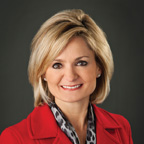
Amy McAnarney, H&R Block
Good managers and successful organizations live by it: “Surround yourself with the right people,” says Amy McAnarney. That has served her well on her rise to president of H&R Block’s U.S. retail company operations. But it doesn’t stop at the workplace. “Your choice in spouse/partner is the most important choice you will make,” she says. “Thankfully, I chose wisely.”
She and her husband, David Hunt, have a 5-year-old daughter and her college-age step-brother, beneficiaries not only of McAnarney’s choice of co-pilot, but other pearls of wisdom she applies both at home and in the office, such as never underestimating the power of being organized, and knowing what is most important to you in raising children. That, she says, is “just like having success criteria defined in your career!” And at home, that means teaching her daughter to love God, be independent and make good choices.
An Army brat whose longest stop as a youth was Manhattan, Kan.—both for high school and her accounting studies at K-State—McAnarney has worked in an intriguing mix of career settings: seven years for what became Deloitte Touche, a stint as controller for a recycling company, then to H&R Block, first in an IT role, then moving back to the numbers side.
At each stop, she said, success was determined by certain values. “There are certain items for me that I believe are extremely important: hard work, vision and drive, respect for others,” she said. “People sometimes think things come easy, and they never do. It really takes hard work—and one saying I love is ‘keep your head down and follow through,’” which applies, she says, just as much to the office as the golf course.
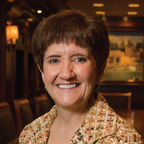
Mary Stadler, Kansas City Southern
In a career defined by numbers, Mary Stadler has found success in the power of simple words. Long before she became chief accounting officer for Kansas City Southern, she learned the value of being able “to take something complex like technical accounting guidance or regulatory requirements and translate that information into something relevant to the business or to the person I was working with.”
With stops at Deloitte and Franklin Savings Association, she quickly learned that she wouldn’t get very far or have meaningful input into an issue if she couldn’t be a communicator: “I didn’t want to be that finance person that everyone avoided because what I talked about was unnecessarily complicated or didn’t have ‘real world’ relevance,” she said. That skill set, she said, set the stage for her transition to Sprint, where she would spend 18 years before joining KC Southern in 2009. “I knew nothing about telecom, but I’d help people navigate the technical finance issues, and they ended up teaching me about the business. It was a great trade-off,” says Stadler.
She grew up in Prairie Village and chose a business/accounting major at the University of Kansas because “opportunities for women seemed very visible and attainable in that field, so I thought that would be a great place to start a career,” Stadler says. Making the leap from one large company like Sprint to another like KC Southern—organizations with profoundly differing missions—allowed her to focus on the common denominators. “There are similarities in terms of operating a public company in a complex regulatory environment,” Stadler says. “When I joined KCS, I looked for the similarities, and used those similarities to find the opportunities to exchange accounting/finance expertise for more knowledge about the railroad industry.”
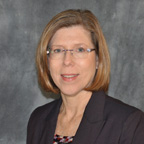
Linda Bahrke, Mosaic Business Solutions
She didn’t even have to leave the Iowa farm to pick up some of the most important career guidance she’d ever receive. Linda Bahrke says her father “valued education and demonstrated that commitment and good verbal skills are critical to success,” and her mother taught her compassion. “I believe that valuing others is a critical component of a good leader,” says Bahrke, who recently became administrator for Heartland Heath’s Mosaic Business Solutions, which provides health and productivity management services to employers.
Her interest in health care was piqued in high school, and she chose nursing for a career, then spent 10 years as an emergency room nurse in Iowa, Arizona and Missouri before care management duties beckoned. “I really enjoyed the care management field because the focus is about helping people live the best quality life possible, whether they are healthy or living with a chronic disease,” she said.
That eventually led to St. Joseph, where she joined Heartland Health in 1994 as a care-management team leader. She rose to the vice-president level there, became administrator for Community Health Plan, a Heartland subsidiary, in 2001, then took the role with Mosaic upon its founding in 2009. Her rise has coincided with what she calls the “thinning” of the glass ceiling, but it’s still in place, she says. “I’m sure that women and men will one day be equally judged on their experience and ability to get the job done and therefore, be placed in positions on those merits,” she says—and hopeful that it won’t ever be a barrier for either of her two grown daughters.
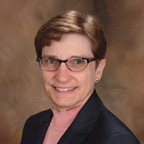
Natalie Haag, Capitol Federal Financial
Natalie Haag’s ascendance to general counsel for Capitol Federal Financial in
Topeka started, perhaps, with a pair of presidents—Richard Nixon and Jimmy Carter. Watergate, she said, inspired in her “the typical arrogance of a teenager,” and she decided to become the first woman president of the U.S. to “straighten these men out.” That gave way to Carter’s management of the Iranian hostage crisis, and a change of heart about political office. “But my belief that strong ethical lawyers play a key role in shaping the political and legal fabric of our state and country persisted,” she says. She applied that belief in varied settings—11 years in both private practice and prosecutor’s roles in Cowley County, Wichita and Topeka; seven years as general counsel to Gov. Bill Graves, and nine years as associate general counsel for Security Benefit Corp. in Topeka before her position at Cap Fed. “Each opportunity served as a building block for my current position,” Haag said, teaching her to develop written and oral skills of persuasion, conflict resolution, public policy, fiscal plans and building consensus among diverse political views.
Raised on a dairy farm near Holton, Kan., she earned her degree in agricultural economics from K-State, then her law degree from Washburn. But the instruction at home first would prove defining. “My father repeately told me that I could do anything—that there was no such thing as man’s work or woman’s work. Of course, he generally wanted me to stop whining about milking cows, hauling hay, or shoveling manure, but the lesson stayed with me. For him, the glass ceiling didn’t exist.”
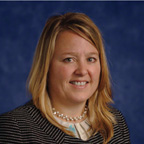
Brenda Stasiulis, MIQ Logistics
Not everyone has the kind of self-awareness that sets their course in life while they’re still in high school. But it was hard-wired into Brenda Stasiulis, who took
a pair of accounting clas-ses at Topeka Seaman High School and “I knew then that I wanted to major in accounting. We actually had a class called ‘business machines’ and I was really fast on a 10-key calculator!”
The rest was almost predictable: bachelor’s in accounting—magna cum laude from Baker Univ. and a 16-year stint with Ernst & Young, where she specialized in manufacturing and service industries for the firm’s audit practice. Public accounting, she said, taught her to juggle many tasks at once, and to appreciate the power of facts in a fact-based discipline. “Asking questions that drove to the facts—what are the terms/attributes of a problem, what has been recorded, what do the rules guide us to—seems to take the ambiguity and creativity out of issues. Ultimately, it made the path easier in a way.”
That path led her to YRC in 2004, and in six years there, she rose to VP-Assistant Controller. After a wild ride there, the company spun off a unit that became MIQ Logistics, where she’s the CFO today. Boom years a decade ago at YRC gave way to financial challenges in 2009, she said, but “also provided lots of learning experiences—though I certainly wished the circumstances had been different.”
The flurry of activity associated with the MIQ spinoff was challenging. “We as a company had so many things to create, decide, form,” she says, requiring managers who were adept at multi-tasking and making decisions. “I believe this attribute is very common in successful women—it has to be. Juggling a family that likely includes two careers, making sure children feel secure and loved and being a good employee all create a balancing act.”
She and her husband Brad—an accountant, as well—have two daughters, ages 8 and 10.
Return to Ingram's October 2013